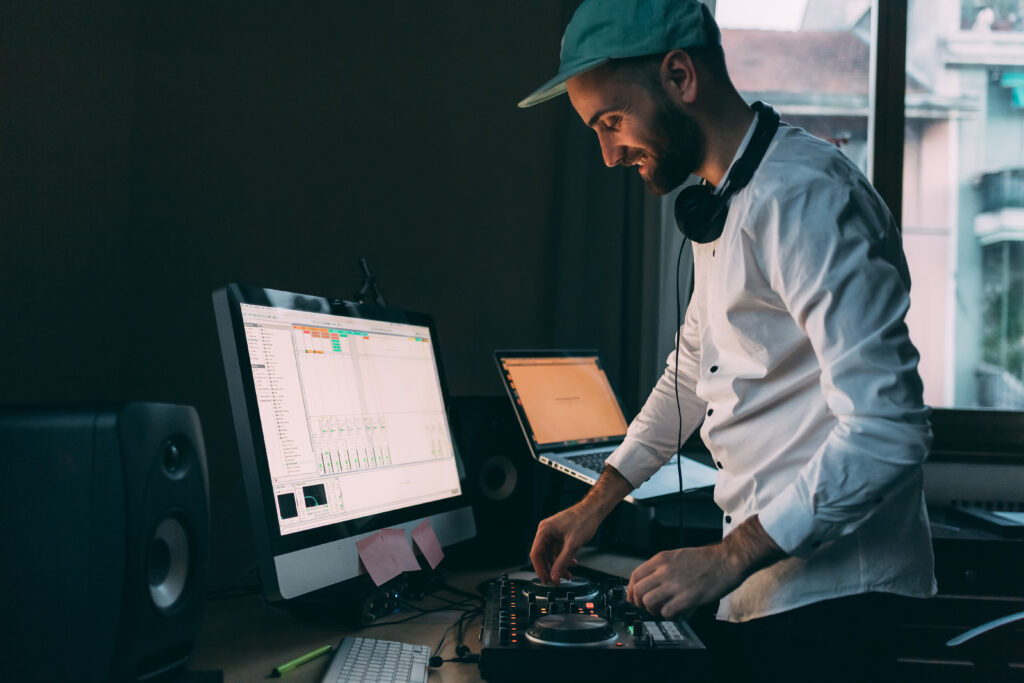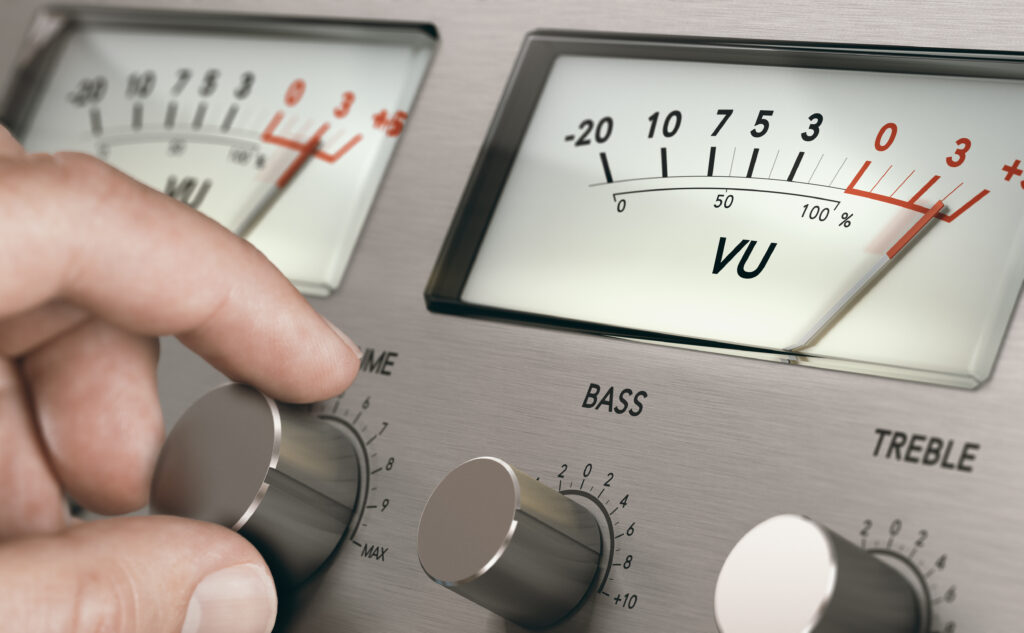Are you a budding music producer, looking for a genre to focus on? Are you drawn to the sound of house, techno, latin, rap, or EDM? There are so many genres out there, it can be hard to know where to start! If this sounds like you, then this blog post is for you. We’ve compiled a list of the most popular genres and their key characteristics so that you can find one that suits your style.
Getting Started: What Genre of Music Should You Produce?
When deciding what genre of music you should produce, you should start by considering your own personal preferences. What type of music do you most enjoy listening to? What genre do you naturally gravitate towards when creating music? If you don’t have a particular genre in mind, it can be helpful to take a look at the music scene around you. What type of music is popular in your local area? Does any particular genre stand out? Once you’ve identified a few potential genres, it’s time to dive deeper and research each one in more detail. Consider the rules, stylistic choices, and production techniques associated with each genre. Think about what type of equipment and tools you need to create the sound that you have in mind. Finally, experiment with different production styles to refine your sound design and create a unique sonic signature.
Consider Your Personal Preferences
When you’re deciding what genre of music to produce, it’s important to consider your personal preferences. What type of music do you enjoy listening to? What kind of music do you want to make? Do you want to stay within an existing genre or create something entirely new?
Think about the elements that make up different genres, like instrumentation, structures, rhythms, timbres, and production techniques. Which elements interest you the most? Do you prefer a minimalistic approach or a maximalistic one? Are you more interested in creating dancefloor-friendly tracks or something more contemplative and introspective?
Write down your ideas and thoughts about what kind of music you would like to produce. Don’t be afraid to explore different genres and subgenres. You may find yourself drawn to a style that you hadn’t considered before. Ultimately, the idea is to find something that resonates with you and that you’re passionate about.
Analyze the Music Scene Around You
If you’re looking to become a successful music producer, it’s important to understand the music scene around you. Take the time to analyze the genre of music that is popular in your area, as well as the type of artists that are getting attention. This will help you get a better idea of what type of music you should focus on producing. Additionally, researching the type of instrumentation and production techniques used by popular artists in your area can help you gain an understanding of what type of sounds to create when producing your own music. Doing this research will also give you insights into what types of songs and sounds will be successful in your local music scene.
Research Different Genres and Subgenres
When it comes to producing music, it’s important to do your research. With such a huge variety of genres and subgenres, you’ll want to take the time to explore the different styles of music and what makes them unique. It’s helpful to listen to music from different genres and subgenres, and even take notes on the musical elements that make each one distinct.
You may want to start with more popular genres such as hip-hop, pop, EDM, or rock. Then you can experiment with more niche genres like grindcore, vaporwave, or future bass. Having a basic understanding of the different genres will help you decide which one you’d like to focus on. Additionally, you can look into the history of each genre and learn more about the techniques used in production such as sampling, synthesis, and sound design.
Refine Your Concept and Sound Design
When you’ve decided on a genre to produce, it’s time to refine your concept and sound design. Now is the time to really dig into the details of the genre, explore its specific rules and stylistic choices, and become familiar with the conventions associated with it. It’s important to recognize that even within a genre, there can be a wide variety of sounds and styles. Take the time to listen to a variety of songs in your chosen genre and find ones that appeal to you. Identify the elements that make them successful and use them as a guide for your own productions. As you hone in on your specific sound, think about what type of equipment you will need to create it. If you’re working in a software-based environment, consider what type of software plugins you’ll need to achieve the desired sound. If you’re producing music with hardware instruments, familiarize yourself in the types of gear that are used in the genre and what they are capable of. Once you have your concept and sound design in place, it’s time to start experimenting with different production techniques. Whether it’s sampling, synthesis, or more advanced techniques like sound design, take the time to explore them all.
Understand the Rules and Stylistic Choices of Your Genre
When you’re deciding on a genre of music to produce, it’s important to understand the rules and stylistic choices that define it. Every genre has its own set of conventions and rules that must be followed in order to make a successful track. This means that you need to learn the specific sound design techniques, production styles, and other elements that are associated with the genre.
Take the time to research the genre and familiarize yourself with its conventions. Listen to existing tracks in the genre and get a feel for how its elements are arranged. Look into the different techniques used by established producers in the genre and learn how to apply them in your own music. This will help you develop an understanding of the genre’s rules and stylistic choices, so that you can use them effectively in your own productions.
Think About What Type of Equipment You Need
When you’ve chosen the genre you want to produce, it’s time to make sure you have the necessary equipment. Depending on the genre, this could range from basic hardware such as a MIDI keyboard and computer, to complex pieces of studio gear. Make sure you have a solid understanding of the tools that are available and how you can use them to create the music you’re after.
Take some time to research the type of equipment that is used in your chosen genre. Consider what instruments and sounds are used, as well as which effects are popular. If you’re working in a genre such as hip-hop or EDM, then you’ll need to consider the use of samples, synthesis, and other production techniques. You may also want to invest in plugins or other software tools to help you create your sound.
Once you have a good understanding of the tools that are available, it’s time to start building your studio. Consider your budget and make sure that you purchase only what you need. You don’t need to buy the most expensive gear – there are plenty of affordable options out there that will do a great job. Invest in quality gear that will last and make sure that you have all the right cables and connections for easy setup and use.
Remember, having the right equipment is just part of the process – it takes practice and experimentation to get a good sound. Take some time to
Explore Sampling, Synthesis, and More Advanced Techniques
Once you have chosen a genre for your music production, you may want to further refine your sound by exploring sampling, synthesis and other more advanced techniques. Sampling is the process of incorporating sound clips from other recordings into your own music. Synthesis is the process of creating new sounds using synthesisers and other equipment. Both techniques are often used in contemporary music production and can help to create a unique sound. You may want to consider taking a course or reading tutorials to learn more about these techniques. Additionally, learning more about recording techniques such as multi-track recording, mixing and mastering, can help take your music production to the next level. The more you practice and experiment with different techniques, the better your productions will sound.
Experiment with Different Production Styles
When it comes to producing music, experimentation is key. As you start to hone in on the genre and sound you want to achieve, take the time to explore different production techniques and styles. This is an important step in finding your own unique sound and refining your craft. You may find that you prefer certain techniques or sounds over others, or that you gain inspiration from varying styles of production. Experimentation will also help you become more versatile as a producer, allowing you to create a wide range of different sounds and styles.
Practice Writing Music in the Chosen Style
Writing music in the chosen style is the best way to get started in any genre. It gives you a chance to explore and experiment with different sounds, rhythms, and melodies. Start by finding some good examples of the style and learning from them. Take notes on what you like and how it was made. Then, try to recreate it in your own way. When it comes to music production, practice makes perfect, so don’t be afraid to make mistakes. As you become more comfortable with the genre, you can start adding your own unique spin on things. Don’t be afraid to think outside of the box, as this is what will make your music stand out from the rest.
All the WordPress themes that we have here have had a vast team of professional designers sketching, working and executing the ultimate visual look for it. With such a wide range of choices at hand, we strongly advise you to stick to the WordPress Theme that is based on your business’ or a closely related field.
When you need your company to have a new website or if you venture on updating your old webpage with a new look and functionality, the choices are versatile. Assuming that you will go the easy way and choose a theme for your WordPress website, the overall number of characteristics that you will need to keep in mind narrows down significantly. Often searching out the graphical symmetry in chaos, while still maintaining the personality and emotion of the subject. The excitement and anticipation as we waited to see the next piece of unpredictable chaos was electric.



